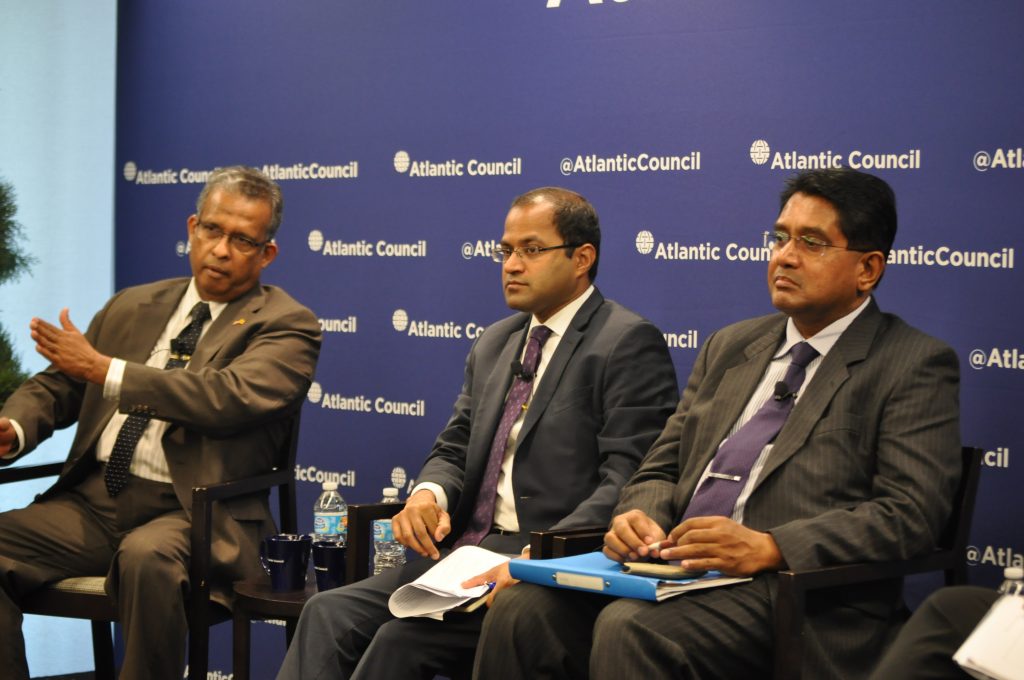After decades of damaging civil war, Sri Lanka and its new government are setting a course to prevent the reoccurrence of conflict and violence. In an unprecedented session combining political and civil society leaders, Sri Lanka’s Ambassador to the United States His Excellency Prasad Kariyawasam and Consortium of Humanitarian Agencies’ Jeevan Thiagarajah and Dhanya Ratnavale discussed the path forward for the country. Sharing one stage itself is a “manifestation of the landmark changes that have happened in Sri Lanka,” said Kariyawasam
The country is unified around two new pillars of policy: development and reconciliation. Though the war remains in the past, the country must address the massive challenges of missing persons and displacement, as well as building accountability and trust. “Knowing when internal displacement ends is important to determining when national responsibility, attention, and resources should shift,” argued Ratnavale, from a specific focus on displaced persons to broader societal rehabilitation and development. This path is paved by focusing immediately on key areas of development, including ensuring physical security, rebuilding and restituting property, restoring livelihoods, and maintaining rule of law.
A parallel effort to rebuild Sri Lanka’s economy and democracy is significant for internal normalcy but also reemergence on the international stage. Sri Lanka “shows intent to prevent isolation of country and people from the global community…and to be recognized among the democracies of the world…to achieve sustainable progress and development,” stated Thiagarajah.
“Sri Lanka is the natural hub of the subcontinent – right in the middle of the sea lanes,” said Kariyawasam, affirming Thiagarajah’s sentiment. “Our economic prosperity is linked to the prosperity of our sub-continent. We are linked with the subcontinent in a manner that our economic and social destinies are interlinked and interconnected.”
Sri Lanka’s geographical location has been the source of economic opportunities and challenges. As an island nation with a majority of citizens living and working along the coastline, the maritime domain remaining “peaceful and open to commerce” is one of many priorities for the new government.
In this regard, Sri Lanka’s relationship with the United States, “the most powerful maritime nation in the world,” is significant. Kariyawasam asserted that the US and Sri Lanka will work towards better coordination. The US Secretary of State John Kerry’s visit to Sri Lanka in May, the first US Secretary of State visit to Sri Lanka in forty-three years, suggests a similar inclination from the United States.
The new government has been a driver of reform, and has prioritized human rights and accountability in its agenda. Beyond the development and reconciliation efforts made this year, Kariyawasam applauded the passage of the 19th amendment in April. The amendment, passed with almost unanimous consensus, promotes transparency and accountability by limiting cabinet size and ensuring citizen’s rights for information.
The government remains in transition, however, with parliamentary elections expected before September. With Sri Lanka’s changes, “South Asia has become a democratic region,” said Kariyawassam, ready to remerge in the region and gain ascendancy through economic and social progress.
